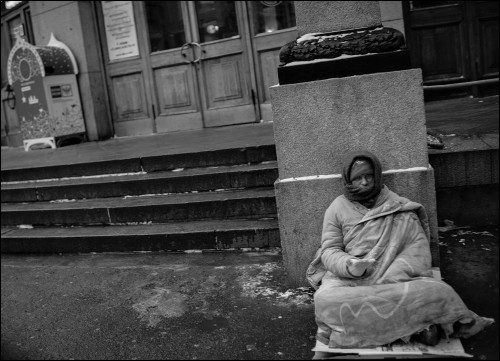You have no items in your cart. Want to get some nice things?
Go shopping
Face wash. Body spray. Deodorant. This is not a shopping list, but a statement that as women we like to be clean. We wake up every morning, kick everyone else out of bed, take a long hot shower, spray, slap and rub in clean products, and then change into clean clothes for a new day. This seems like a chore, an effort, not an attractive option when we could stay in a warm bed. But then, what if we feel that sudden gripe and know that it is that time of the month? Painting the walls. Riding the cotton pony. Or, my personal favourite, falling to the communists. We scurry cross legged to the bathroom and used a sanitary product. That would seem the logical course of action, and yet thousands of women simply cannot do that. They wake up on a floor outside, with no one near them. They go to a river and wash themselves as best they can, but have no towel and so become used to the freezing cold. They rake their hands through their hair and can do nothing more to their appearance. And then, as we are all women, they feel the familiar gripe. Now what?
Sanitary products are of course provided by homeless charities, but they are deemed a non-necessary item, a luxury. I have never known a woman to date that has experienced menstruation pain and thought “this is a luxury, I will not waste it, instead, I will lie in the foetal position and moan”. Sanitary products are not viewed as essential, and as such there appears on the surface to be little need for them. An unfortunate woman out on the streets has to adapt. There are case studies of women escaping violent partners and running away with nothing but the clothes on their back. These women have not bought poverty on themselves, nor have they bought menstruation on themselves. So why provide support for one and not the other?
According to the World Health Organization (WHO) in a 2015 article, the top issues for women’s health range from cancer to HIV. There is no mention of menstruation. This is the problem. If we don’t mention it, then we do not have to do anything to address it, because it isn’t a problem. 52% of the population experience menstruation. We can handle it easily, but only with the right equipment. Without sanitary products, women are left to drastic actions to retain some level of dignity. Flow Aid, a fairly recent charity that focuses on this need, said ‘These women are invisible, and need organisations like FlowAid to talk up on their behalf. If you have something so accessible, you don’t consider not having it, and that’s where we need to change the attitudes’. Women make up 26% of the homeless population, yet this third a denied this human right that is up there with food, water and shelter. This figure does not take into account the number of women too ‘embarrassed’ to come forward for help, and therefore thousands more are left without sanitary aid. Hayley Smith, founder of the charity Flow Aid, wrote that ‘Nothing is luxurious about having a period, and this can’t be more true for homeless women. To think that condoms are available from several outlets for free, and sanitary ware is only accessible for those who can afford it is atrocious and slightly perverse. Women cannot help having periods, it is not a choice we have’. Indeed, sexual activity is a choice, and we are able luckily in this country to be provided with protection free of charge. But no woman wants periods. Fertility maybe, but not the pain and nuisance of menstruation every month.
So let’s change this problem. How though? Approaching homeless women and offering sanitary products (although intentionally good), may impact little over the greater problem. By supporting charities such as Flow Aid, we are addressing the wider issue and therefore help the individual. The government is doing little to help. With the recent denial of free sanitary products to working women shown in the ‘No Tax for Tampons’ campaign, there seems little hope for a nearly all male government stepping in. Dermot McNamara, a Flow Aid worker, wrote that ‘It’s utterly atrocious that there isn’t any Government support for these women’. So, as the general public we must use our greatest weapon. Quantity of supporters. Flow Aid suggests donating sanitary products to local shelters, where they are in a shameful short supply. Flow Aid itself has gained support from organizations such as The Big Issue, the Women’s Refuge and Miss England. By promoting and supporting charity organizations such as these, we provide publicity, fundraising and therefore enormous support. Flow Aid has also been responding to every single homeless woman’s problems, by recently creating ‘survival kits’ that provide sanitary products along with food and clothing. Without these kits, and the support this charity provides, it can be understood why some women turn to stealing in order to stay clean. Gain support, target MP’s who may or may not know about his problem, bring it into the Third Sector (organizations free from previous traditional views), scream about women’s rights. There needs to be collaboration between the public, the government and charities to make this change. We may feel awkward about the topic, menstruation has long been a topic that is denied, whispered and hushed about. We feel the need to hide what is natural and it does not need hiding. When we think of helping homeless women, we think of food, shelter and a fresh start. We do not think of sanitary products, and this needs to change. So, when you wake up in the morning and wash, dress and feel that familiar gripe, remember, it is not and should never be a privilege for sanitary products, but a basic human right.



